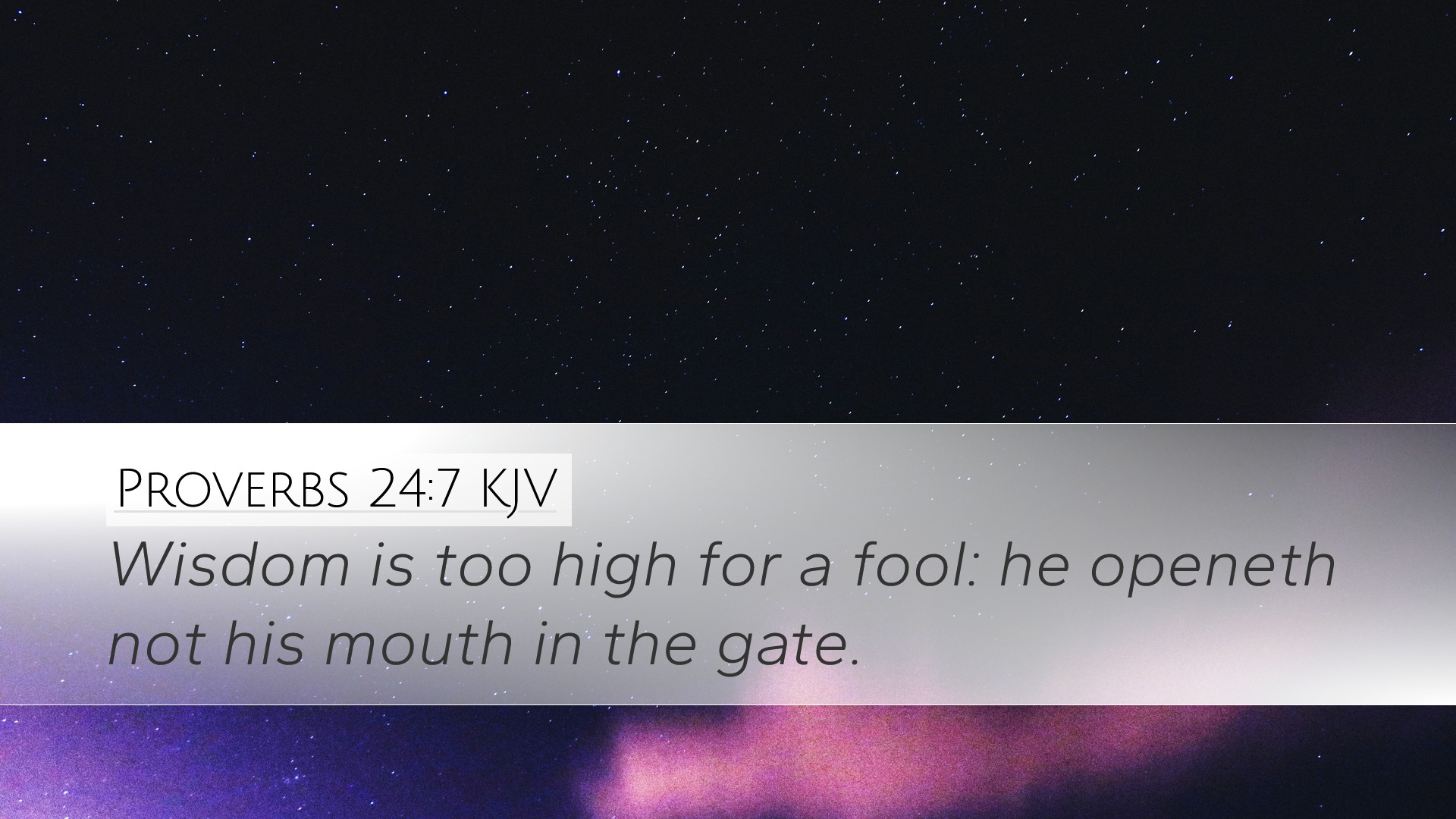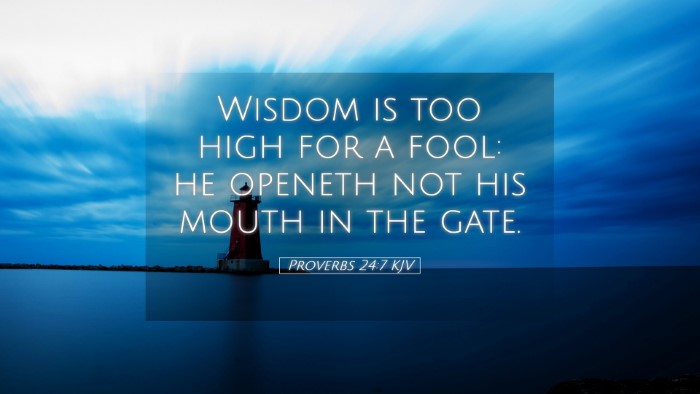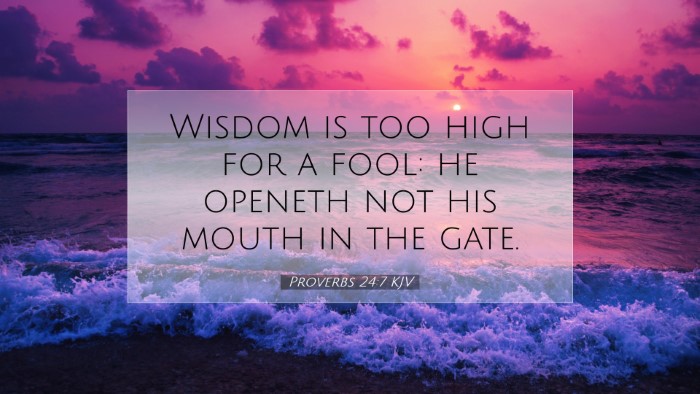Proverbs 24:7 Commentary
Verse Context: Proverbs 24:7 states, "Wisdom is too high for a fool: he openeth not his mouth in the gate." This verse serves as a poignant reminder of the paramount importance of wisdom in human interactions and decision-making, particularly in contexts demanding discernment and understanding.
Insights from Matthew Henry
Matthew Henry eloquently expounds on the nature of wisdom, asserting that it is not merely an intellectual asset, but a profound comprehension that recognizes the right course of action. In this verse, he emphasizes that wisdom is beyond the grasp of a fool, which he defines as one who lacks discernment and insight. Henry suggests that the "gate" symbolizes the public sphere where critical decisions are made and opinions are voiced. The fool’s silence in this setting is indicative of his inability to comprehend the profundity necessary for wise judgment.
The Role of a Fool
Henry articulates that a fool's silence is not a sign of acquiescence but rather an acknowledgment of their limitations. This emphasizes the reality that those who lack wisdom are often aware of their incapacity to engage in meaningful dialogue, thus remaining silent. The phrase "too high" signifies that wisdom requires elevation of thought and morality, which a fool cannot access.
Albert Barnes' Interpretation
Albert Barnes delves into the implications of this verse, noting that it serves as an admonition about the prevailing ignorance among those unwilling or unable to seek wisdom. He posits that wisdom is not merely attained through education but through experience, reflection, and spiritual insight. Barnes asserts that the "fool" here represents not just a simple-minded individual but one who is obstinate and resistant to the acquisition of wisdom.
The Public Forum as a Measure of Wisdom
According to Barnes, the mention of the "gate" is significant as it references places of public discourse and decisions, where wise counsel is essential. The inability of a fool to speak in such settings speaks volumes about the worth of wisdom and the disastrous consequences ignorance can have on community welfare. Barnes emphasizes the need for humility and the pursuit of wisdom as a vital endeavor for all.
Adam Clarke's Perspective
Adam Clarke provides a more detailed exploration regarding the nature of one's character as it pertains to wisdom. He correlates the essence of wisdom with moral and ethical conduct, arguing that true wisdom is rooted in understanding and the application of divine principles. Clarke stresses that to understand the value of wisdom, one must contrast it with folly, viewing it as a moral folly that leads to derision and eventual downfall.
Implications for Personal Conduct
Clarke suggests that Proverbs 24:7 engages the reader in self-reflection regarding his or her own pursuit of wisdom. The reflection on one's own engagement in public discourse, or lack thereof, points to a need for spiritual growth. He encourages those in positions of leadership and influence to seek wisdom earnestly, as their ability to contribute meaningfully in public life hinges on their understanding of life's deeper truths.
Theological Applications
Each of these commentaries converges on the idea that wisdom is intrinsically connected to understanding God’s will and living in accordance with His plans. The thought that wisdom is “too high” underscores the need for divine assistance in grasping spiritual truths. This brings forth a crucial theological application: the necessity of prayer, humility, and dependence on the Holy Spirit in the quest for wisdom.
Practical Takeaways for Ministry
- Emphasize the pursuit of wisdom: Encourage congregations to earnestly seek wisdom through prayer and study of Scripture.
- Teach about discernment: Leading others to understand the contrast between wisdom and folly can help them navigate life’s complexities.
- Promote public engagement: Foster environments where wise counsel can be shared, and where individuals feel equipped to speak wisely in public forums.
Conclusion
Proverbs 24:7 serves as a profound reminder of the need for wisdom in every sphere of life, particularly in public discourse. The insights provided by renowned commentators stress the necessity for believers to engage with wisdom, to seek it diligently, and to understand its divine origin. Through this understanding, both pastors and laypeople are called to elevate their pursuit of wisdom, not only for their personal enrichment but for the edification of the entire community.


